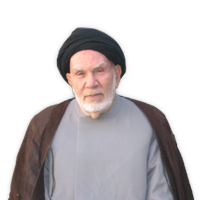Jean-Jacques Rousseau’s Thoughts on Destiny
In the Name of Allah
Derived from the Book, Kowkab Dorri, by Esteemed Philosopher, Ostad MousaviRousseau was born in 1712 in Geneva. His father took him to Istanbul with the assistance of some of their relatives. His mother passed away twenty days after his birth which greatly affected him.
He gradually attained a high status in science and presented many theories.
Rousseau says, “I was born a miserable child and my mother sacrificed her life for me while she was young and my birth was the first moment of my illfate”.[1]
In his book “Man and Thought” he says, “He who is born ill-fatedwill never attain prosperity. Such a person’s life is based upon misery. His life will remain as it is however hard he tries”. However, this view is contrary to the issue of Qada and Qadar (divine destiny and predestination) and is contrary to wisdom. You should be aware that Rousseau’s views are scientifically baseless.
Rousseau’s view about being born a miserable and ill-fated person is totally unacceptable. We believe that whoever is born in this world is the most fortunate person because if he had not received the Favor, Grace, and Love of God, he would not have ever been placed within his mother’s womb.
Rousseau concludes when a miserable person does not know the cause of his misery, he should be told that nothing can be done and that he has been destined to live a miserable life.
Hence, contrary to our belief, Rousseau does not believe in Qada and Qadar, supplications on holy nights, and praying to God. However, we believe that a miserable person should find out the reason for his misery and not solely attribute it to fate. He should come to understand whether it was because he did not study when his parents sent him to school. Or maybe it was because he did not study well or did not continue with his education. Any of these reasons may be the cause of illfate. Education is not the only reason. For example, if the person is sent to a blacksmith or to a tailor by his father to learn one of these jobs and does not put in enough effort or is unambitious, he cannot say the reason for his misery is destiny.
Sometimes, we see a person who knows nothing about marriageand about important issues in life such as knowledge, culture, family relations, piety and chastity and has not done any research in this regard marries a person merely because of appearance or love. Such a personlooks at the issue from only one aspect. As soon as this marriage takes place, calamities begin in such a life. We leave it for you to judge; should such a person attribute his situation to fate and say that God has destined me to have such a life! No, my dear one, you yourself are ill-fated and did not have proper understanding of how to begin your married life. Why do you blame destiny?
Hence, one should first find the roots of misery within oneself. However, if all facilities are provided and all efforts are put in but the person does not succeed, it has nothing to do with ill-fate. Here, it is related to God. He knows for example if a person pursues a particular kind of art, that art will be the cause of his destruction. Hence such a person is prevented, in different ways, from attaining his goal.
On the contrary, please pay attention to the following narration:
Imam Sadiq (AS) was at a place when a tailor approached him and asked “O son of the prophet (PBUH), which is more preferable:art or belief in the Oneness of God?” Imam Sadiq replied, “Both”.First discover and believe in the Oneness of God and then pursue art. If you excel in art but do not believe in the One and Only God, if a needle pricks you, you begin screaming. However, if you have strong belief in the Oneness of God you will not scream but merely say, “God has destined this to happen”. This will cause you to calm down as it should be.”
Therefore, when Rousseau says, “The roots of miseries should be sought within the person, not in destiny,” we accept half of his view and reject the other half. We too believe in destiny and add to it ambition and effort. The conditions for success are provided by parents and ambition and effort are put in by the person himself.
Many people supplicate to God in order to remain calm in issues related to destiny.
O God! I am aware of my own inability and am a witness to my helplessness.
O God! I did not have knowledge till I had power and when I attained knowledge, I had no power.
[1] The Story of Civilization by Will Durant, Vol. 10, Chapter 1, p. 8




Comments
0